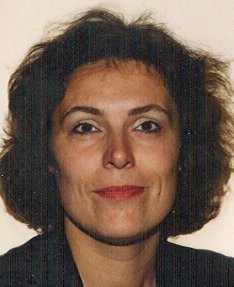De Houwer, Annick

Annick De Houwer, born in Schoten, Belgium, in 1958. Ph.D. from the Free University of Brussels. Research Fellow at the Belgian National Science Foundation, NFWO, and Assistant Professor at the Department of Communication at the University of Antwerp.
VNC Fellow (1 February 1996 – 30 June 1996)
The main purpose of my stay at NIAS was the preparation of a state-of-the-art report on environmental factors in bilingual language use together with P. Muysken from the University of Amsterdam, with whom I shared a VNC Fellowship. In preparing this report, it soon became clear that in looking for explanations of bilingual language use environmental factors cannot be looked at separately from speaker-internal factors. As such, the focus of the planned state-of-the-art report needed to be expanded to include both environmental as well as psycho-social factors as possible determinants of bilingual language use. Notwithstanding this broader scope, the joint paper is nearing its completion and will soon be submitted to a journal. Thus, the joint project that was the main purpose of my stay at NIAS has been carried out quite successfully.
My stay at NIAS has also contributed substantially to the editorial work I have been engaged in regarding a state-of-the-art volume in English on the acquisition of Dutch as a first language. The authors working on this volume are primarily based in the Netherlands, and my stay at NIAS has made it possible to be in close and frequent contact with them. As a result, work on the volume in preparation has been progressing very well.
Besides work on the VNC project and the editorial work on the language acquisition book, I gave nine presentations, attended numerous scientific meetings, organised two workshops, finalised a journal article, and initiated and completed two more papers that will soon be published.
Aside from the contribution to the study of the topic of the VNC project, NIAS has provided me with a unique opportunity, not only to read and work to my heart’s content, but also to exchange ideas with colleagues from many different disciplines and subdisciplines in much more than just a cursory fashion, thus considerably broadening my knowledge base and allowing me to develop more nuanced views. I am confident that my stay at NIAS, which has already proved to be very fruitful, will turn out to have a lasting effect on my future work.